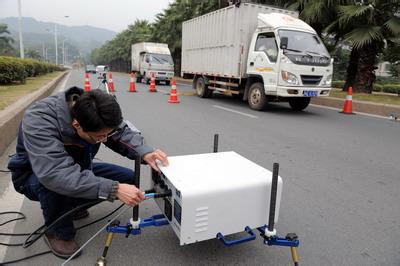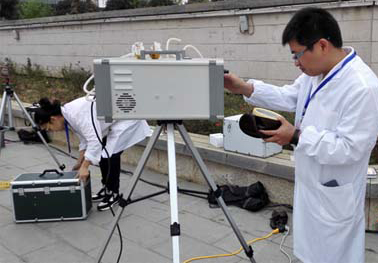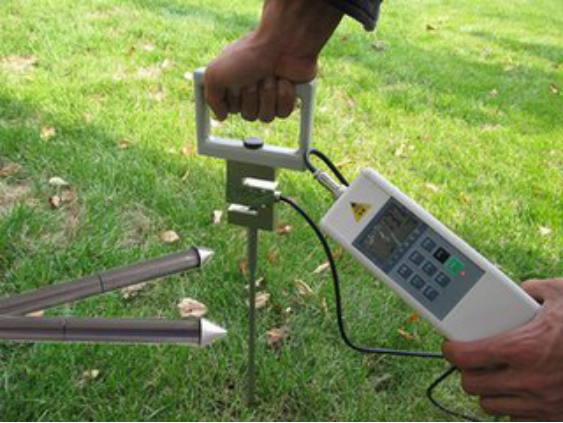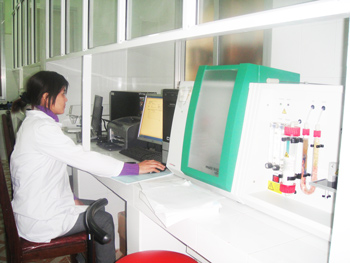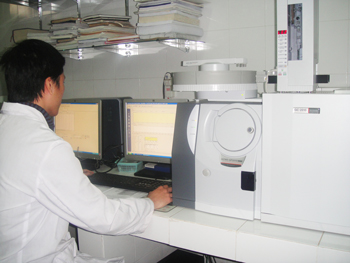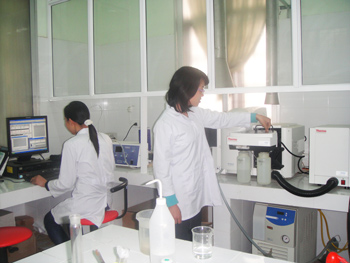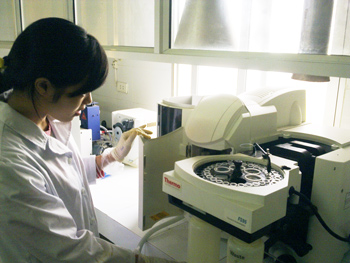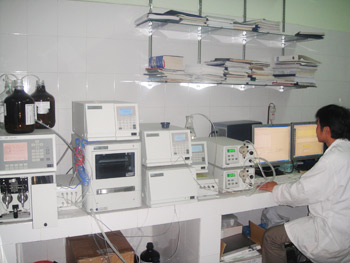Prime Minister Nguyen Tan Dung emphasized this while chairing a regular cabinet meeting on May 27, which reviewed the socio-economic situation in May and discussed solutions to boost socio-economic development in the remaining months of the year.
PM Dung said there will be no adjustments made to any of the targets set at the beginning of the year and that supporting businesses in production should be in line with containing inflation and stabilizing the macro-economy.
Positive socio-economic changes
All cabinet members agreed that there have been positive socio-economic changes with all fields and sectors enjoying a recovery and overcoming difficulties, which provides impetus for economic growth in the coming months.
The most significant achievements were recorded in containing inflation and stabilizing the economy with the consumer price index slowing down over three consecutive months (0.16 percent in March, 0.05 in April and 0.18 in May), the lowest levels compared to the same periods in previous years, they said.
Synchronous measures to cut interest rates were taken, leading to a 2 percent decrease in deposit rates (from 14 percent to 12 percent). Drastic changes in credit policies were also implemented to assist the agricultural sector, the production of export goods, and the processing industry, as well as small- and medium-sized businesses and those employing large numbers of labourers.
They said despite the challenges facing industrial production, it has improved since March, thanks to measures taken to help businesses such as reducing and deferring tax payments.
Since early 2012, the agricultural sector and localities nationwide have made great efforts to overcome difficulties caused by natural disasters and epidemics to maintain stable production, ensure food security and improve people’s living conditions, thus contributing to securing social order and safety, especially in the face of the current economic difficulties.
 |
The service sector saw significant development with retail and service revenue in the first five months of this year increasing by 28.8 percent over the same period last year. The number of tourists arriving in Vietnam since the beginning of the year was also higher than in the same period of 2011.
Social welfare, health care, and culture also recorded important achievements. More than 612,000 new jobs have been created since early 2012 and more than 32,000 workers have been sent abroad. Relevant ministries and agencies, along with localities, have tried to ensure traffic safety and reduce the number of traffic accidents.
However, cabinet members also pointed to shortcomings and challenges confronting the economy, including low economic growth compared to the same period in previous years. The industrial production index in May increased by only 4.2 percent, 50 percent lower than the average rate during the same period in 2010 and 2011. Both Hanoi and HCM City experienced low economic growth with falling purchasing power, large inventories, slow disbursement of the State budget and Government bond capital, and an increase in the number of businesses dissolved or halting operations.
Helping businesses iron out snags
According to many cabinet members, initial achievements in curbing inflation, stabilizing the macro-economy and boosting production laid a firm foundation for higher economic growth in the remaining months of this year.
They proposed focusing on dealing with the current difficulties and challenges facing the economy such as high interest rates; the limited capacity of businesses to access and absorb capital; rising input costs that negatively affect export competitiveness; and the increased number of dissolved businesses, which seriously affects workers’ incomes.
The need to help businesses overcome difficulties and develop was particularly emphasized, especially those producinggoods with a competitive advantage.
However, Minister of Planning and Investment Bui Quang Vinh and Minister of Transport Trinh Dinh Dung warned of the return of high inflation and macro-economic instability if monetary policies are not loosened.
Governor of the State Bank of Vietnam (SBV) Nguyen Van Binh said the SBV will continue pursuing the plan to cut interest rates and suggested accelerating the disbursement of public investment capital and encouraging various economic sectors to boost investment.
Deputy Prime Ministers Nguyen Thien Nhan and Vu Van Ninh urged ministries and agencies to make greater efforts to maintain an appropriate economic growth rate and cut production costs in order to increase the competitiveness of domestic products in the export market.
Cabinet members also stressed the importance of assisting employees from dissolved businesses, removing barriers that impair investment efficiency, reducing bad debts, restructuring weak commercial banks, and effectively implementing fiscal policies.
Increasing total demand
PM Dung said that although the socio-economic situation improved in May, new challenges may emerge, such as the low inflation and economic growth, which require better measures to achieve the target of six percent economic growth of by the end of the year.
He said it is essential to increase the economy's total demand and arrange credit for the agricultural sector, as well as export businesses and those employing large numbers of labourers.
The Government leader asked the SBV to continue cutting deposit and lending interest rates, deal with bad debts, stabilize the exchange rate, and restructure weak commercial banks.
He urged the Ministry of Finance to effectively implement the fiscal policies, keep State budget overspending at 4.8 percent as set by the National Assembly, and speed up the disbursement of investment capital from the State budget, Government bonds, ODA and national target programs.
He also asked ministries, agencies, and localities to continue ensuring social welfare, creating more jobs and increasing worker incomes, in addition to assisting poor districts and disadvantaged villages in remote areas.


 English
English Vietnamese
Vietnamese
